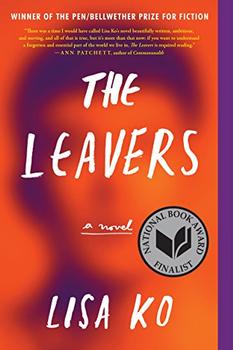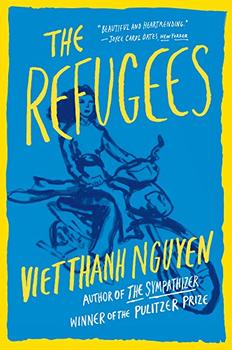Summary | Excerpt | Reading Guide | Reviews | Beyond the book | Read-Alikes | Genres & Themes | Author Bio

It is but natural to question the role of fate and destiny in one's life, to speculate about the path not taken, yet Gary Shang's example stands out as an extreme case, leading one to wonder just how much external manipulation a human being can bear. Ha Jin's protagonist is a frustratingly malleable man, battered by the forces of history into a bare shell of a person, and barely recognizable even to himself.
Years after Gary's death, Lillian Shang comes to realize that there are some facts about her father that have eluded her. She knew that he had been a top spy for the Chinese government in the United States, but what was his motivation? It sure wasn't money. What did he leave behind in his native country when he immigrated? Was it a decision made by choice? To find out more, Lillian, a professor at a university in Maryland, decides to take a spring sabbatical at the Beijing Teachers College. Once there she slowly finds out more about her father and begins to unravel the facts about the family - a wife and children - he left behind when he settled in the United States.
In A Map of Betrayal, Ha Jin writes in chapters that switch between Lillian's stages of discovery set in more contemporary times and Gary Shang's life, which the reader follows from 1949 (when the Communists seized power in China) to 1980. Early on, Shang's English skills land him a job as a translator with the Americans stationed in China, but the Chinese have also recruited Shang as a spy for the country's national security apparatus. As the course of history takes the Americans through various stations in the Pacific, Shang is forced to travel with them, abandoning his family in China, forever being promised that they're being taken care of and that he'll see them soon enough. Eventually he loses all hope and finds himself working for the CIA in Alexandria, Virginia. Shang is still also a top-level spy for the Chinese, sending along vital information when it comes across his desk and now married to an American woman with whom he tries to have a second shot at life.
Jin, who won the National Book Award for his novel, Waiting, is in fine form when he describes the splashes of local color that Lillian comes across on her trip to China. This is not merely the country of gleaming skyscrapers and rapid economic growth, but a more complex place where industrialization and globalization mean that even the most remote village homes now have faxes and computers and printers. The travelogue through village after small village in China, as seen through Lillian's eyes, is bright and vibrant and Jin steers away from his trademark spare style to show that his writing can, indeed, be voluptuous. Unfortunately he also uses Lillian's travels as a forced lesson in politics, reminding us just how evil the country truly is: "I had read that in some regions in western China, entire villages were deserted. The demise of the village would surely transform the country from within. But how would this massive migration affect Chinese society as a whole? Who would benefit? At whose expense?" asks Lillian. It seems that Jin can't get off his soapbox often enough to mold a more organic story.
Shang's narrative boasts of Jin's signature melancholic form, one that seems to cut too close to the bone too often. There are also some plot points that strain credibility: for one, how does Shang's American wife not suspect a thing when he visits the Pacific regions over and over again to meet with his Chinese handler and pass on secrets? Shang too, modeled apparently after the real-life spy, Larry Chin, remains frustratingly weak-spined, manipulated endlessly by the Chinese government. One is even tempted to label him a coward as he is swept along by the tide of history but executes betrayals that are not easy to forgive. Yet it is to Jin's credit that he brilliantly captures the emotional angst of a man who is caught between two hard choices. Nobody can know Shang's trials. Nobody. His only comfort lies in the diplomatic accomplishments (see Beyond the Book) he is sure he has brought about.
The fractured life wreaks a heavy toll. An immigrant's fate is complicated enough, but paint a coating of duplicity and secrecy and things get very murky very quickly. In the end your heart breaks for Gary Shang, a man caught so deep, both in his deceptions and allegiances, that he just can't find a simple way out. That map of betrayal is never quite straightforward; it is, instead, infinitely complex - a mobius strip that spins dangerously out of control, traversing the same treacherous paths and same heartbreaks over and over again.
![]() This review was originally published in The BookBrowse Review in November 2014, and has been updated for the
August 2015 edition.
Click here to go to this issue.
This review was originally published in The BookBrowse Review in November 2014, and has been updated for the
August 2015 edition.
Click here to go to this issue.

If you liked A Map of Betrayal, try these:

by Lisa Ko
Published 2018
Finalist for the 2017 National Book Award for Fiction.
Named a Best Book of 2017 by NPR, Entertainment Weekly, the Los Angeles Times, BuzzFeed, Bustle, and Electric Literature, Lisa Ko's debut novel is essential reading for our times.

by Viet Thanh Nguyen
Published 2018
Viet Thanh Nguyen's The Sympathizer was one of the most widely and highly praised novels of 2015. Nguyen's next fiction book, The Refugees, is a collection of perfectly formed stories written over a period of twenty years, exploring questions of immigration, identity, love, and family.
Your guide toexceptional books
BookBrowse seeks out and recommends the best in contemporary fiction and nonfiction—books that not only engage and entertain but also deepen our understanding of ourselves and the world around us.